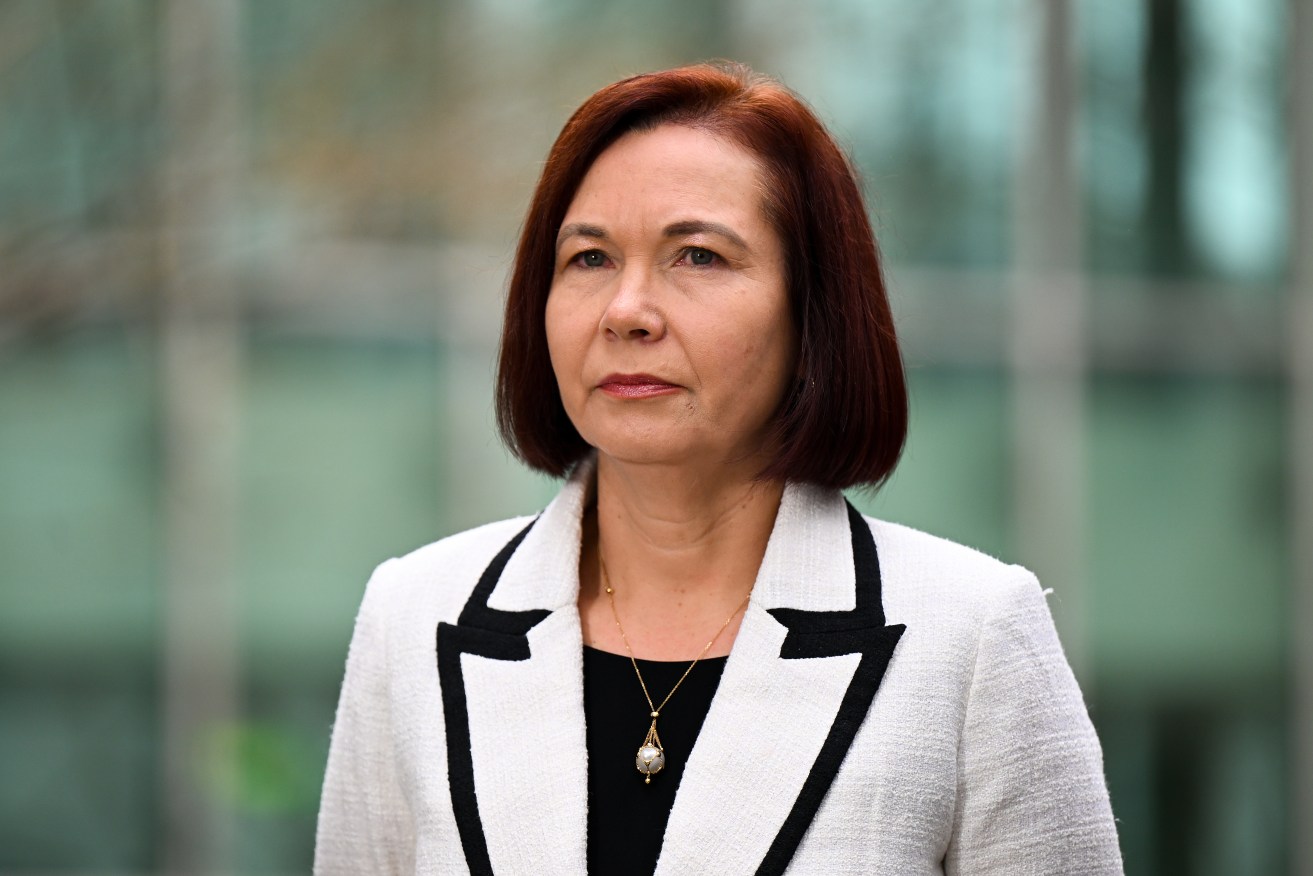New industrial laws ‘most extreme changes ever’, say miners
Mining industry bosses have used a glittering industry event to face off with the prime minister over proposed workplace laws.

CEO of the Minerals Council of Australia Tania Constable speaks to the media during a press conference at Parliament House in Canberra, Monday, June 5, 2023. (AAP Image/Lukas Coch)
“Let’s not sugar coat it,” Minerals Council of Australia CEO Tania Constable told Anthony Albanese at an industry dinner at Parliament House in Canberra.
“These industrial relations changes are some of the most extreme interventionist workplace changes that have ever been proposed in Australia,” she said.
Under laws introduced to parliament on Monday, federal Labor wants to stop employers from using labour hire firms to undermine the pay and conditions of permanent workers.
According to the government, the new laws are not an attack on labour hire being used to plug workforce shortages.
But the industry says it already faces global competition for talent and investment capital, and broader cost pressures that are causing budget blowouts for critical projects.
“At a time when we need to flex our industrial muscle and seize our moment, these changes ensure we fight with our hands tied behind our backs,” Ms Constable said.
Australia needs to unlock investment in critical minerals but these changes – along with environment, emissions and energy policies – will push capital to other countries, she warned.
Mr Albanese said workers and businesses can shape the big economic changes underway in the world and make them work for everyone.
“To build an economy where productivity, wages and living standards grow together and all Australians share in the benefits,” he told the industry audience.
Mr Albanese also thanked the Minerals Council for the “positive and constructive role” it has taken on the voice to parliament for Indigenous Australians.
He said the pursuit of net zero emissions would be the great driver of the global economy over the next two decades.
The building blocks of a clean energy economy – essential to every battery, electric vehicle, wind turbine and solar panel – are all to be found in Australia.
He said he rejected the “false choice” between jobs and economic growth or action on climate change and protecting the environment.
“The work you do proves that these two goals can work together, indeed they must work together for the world’s fastest-growing countries to meet their net zero targets.”
Ms Constable said the mining industry would continue to work closely with government – to highlight the opportunities ahead and the risks of getting it wrong.
“As demand for minerals and metals intensifies, our global competitors are responding rapidly, incentivising development, attracting investment, encouraging growth,” she said.
But they are “stealing a march”, Ms Constable warned.
“So, if there is so much at stake, why would it be wise, at this very time, to place even greater restraints on Australian businesses, to further ramp up costs on our businesses, and threaten investment and jobs?”
These extensive changes to industrial law will result in higher higher costs for everyone, she said.
The event – sponsored by Rio Tinto, Dyno Nobel, Glencore, ANZ and Mitsubishi Development – kicked off the annual Minerals Week in Canberra.












